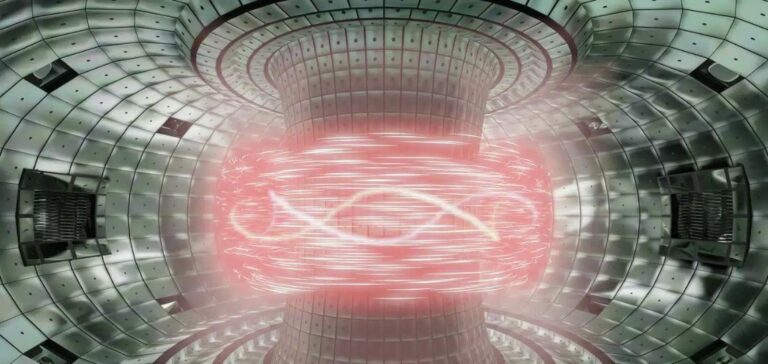Commonwealth Fusion Systems (CFS) has delivered two high-tech superconducting magnets to the University of Wisconsin for their experiment on magnetic mirror fusion technology. This delivery is part of CFS’s strategy to diversify the applications of its HTS magnets beyond its own power plant projects.
The magnets delivered to the University of Wisconsin are the first products in CFS’s strategy to develop high-temperature superconducting (HTS) magnets for a variety of applications. These magnets can generate a magnetic field of 17 teslas in the bore and over 20T on the magnets themselves, i.e. some 400,000 times stronger than the Earth’s magnetic field.
Collaboration with the University of Wisconsin
Since 2019, the University of Wisconsin has been working with CFS to develop this magnetic technology for its WHAM (Wisconsin HTS Axisymmetric Mirror) experiment. Funded by the Advanced Research Projects Agency-Energy (ARPA-E), this project aims to validate computer models for designing more powerful magnetic mirror devices.
Business opportunities
CFS’s main mission remains the delivery of fusion devices of its own design, including the SPARC tokamak currently under construction. However, CFS’s exceptional capabilities in the design and manufacture of HTS magnets attracted the interest of other companies. According to Rick Needham, CFS Commercial Director, designing and building these magnets for other applications represents a significant business opportunity.
Implications for the Energy Sector
The potential impact of these superconducting magnets on the fusion market is significant. The development of this technology could open up new avenues for more compact and efficient fusion devices, thus influencing the energy sector.
The delivery of these superconducting magnets to the University of Wisconsin marks an important milestone in the development of magnetic fusion technology. By validating models for more powerful magnetic mirror devices, this technology could one day enable the creation of economically viable fusion power plants.






















